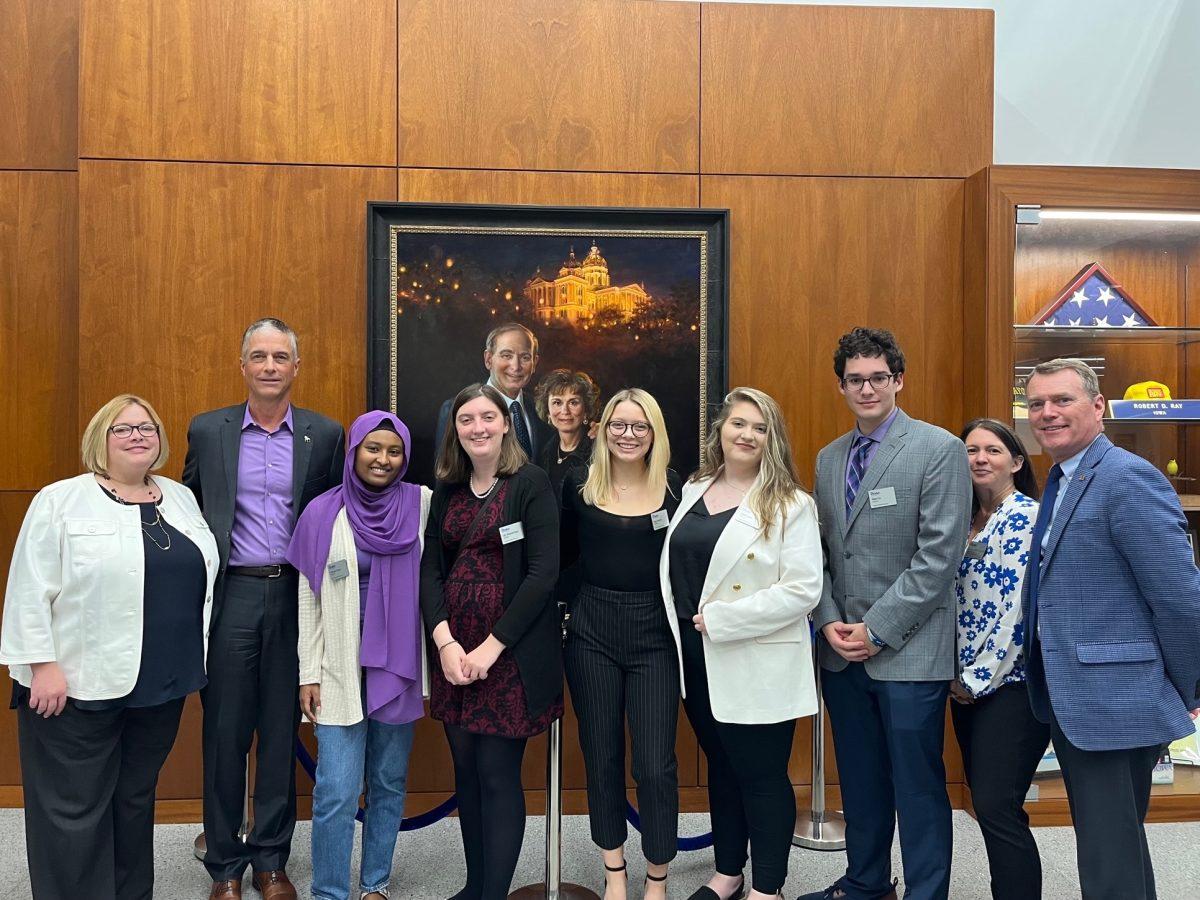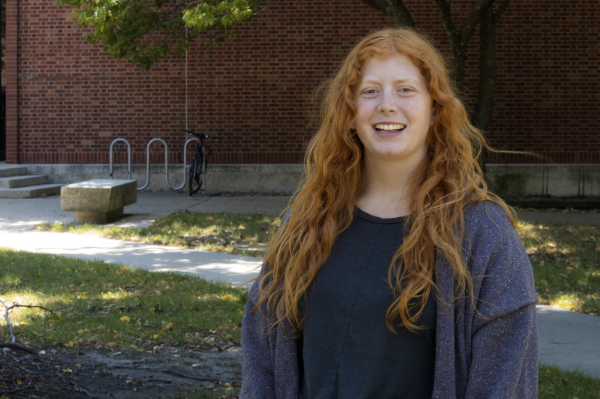Four years ago, Professor Renée Cramer and Professor Rachel Paine Caufield started to talk about building this public democracy program.
According to both co-chair of the department of political science and co-executive director of the Center for Public Democracy, respectively, they wanted to build on Drake’s existing strength by taking aspects of existing resources like the Harkin Institute, writing center, Vote Smart, and the law school’s agricultural law center in a clear organizational structure that includes Drake’s academic programs as well. The Center for Public Democracy scholars was officially created after a conversation with President Marty Martin about the potential scholarships for students.
Public Democracy Scholars is a group of five students and three co-directors who take a deep dive into politics. The program is in its inaugural year and will continue to accept five more students each year.
“Our goal is to create a place where students are exposed to the practices of democracy. There’s a lot of conversation about how to improve democratic institutions. But there’s not a lot of conversation about how to improve democratic practice,” Caufield said. “Democracy only works if we’re all a part of it. So our goal is to bring students into conversation with leaving policymakers and give them an opportunity to develop their own voices and really strengthen democratic practice in whatever form it takes in their own lives. We really wanted to have a broad-based understanding of what democratic practice can mean to different people and how we can strengthen these sorts of habits across a broad range of different disciplines.”
According to Raya Hoppe, a first-year at Drake and member of the Center for Public Democracy, Public Democracy Scholars is an opportunity to get hands-on and in-depth experiences that both interconnects with her classes and expands her knowledge and understanding.
Through this program, students were able to meet with different political figures, such as the governor of Iowa, U.S. Secretary of Labor and a one-on-one with the former ambassador to Ukraine.
“It was really exciting to me that Drake had this opportunity where we can deep dive into politics and actually talk to politicians and get students more involved,” Hoppe said. “It is just so interesting to talk to national-level politicians and local-level politicians. I think, a lot of times, when you see these people, they kind of seem like celebrity figures. But then, when you’re talking to them, they’re really like people just like you, which is something that is really important to see in politicians and public figures in our country. They’re probably more happy to talk to you than you are to them. Just learning how to talk to people and not being afraid to talk to people and just having those conversations is really important.”
According to students and professors involved, communication is at the heart of The Center for Public Democracy. Cramer, deputy provost for Drake University and co-executive director of the Center for Public Democracy, said that this program aims to build students’ ability to communicate effectively even when tackling difficult topics. Hoppe explained that the program hopes to foster civil dialogue all across Drake.
“We sure seem to be a polarized country, but thoughtful conversation and meaningful relationships can change the tenor of disagreement, can increase civility, can turn what feels personal into a policy discussion, and can be healthy,” Cramer said. “I hope all of our students grow in their capacity to have difficult conversations around important topics. This means growing in their ability to listen and understand, to take perspectives different than their own, and to speak powerfully, passionately, and respectfully of their own views and experiences.”
Caufield said that Public Democracy Scholars is only in its infancy and there are many things yet to come. Caufield said that the program will continue to grow so that Drake will be one of the first places people think of when they consider where to study political science.
“As we build this out, I would love to see Drake be positioned as the place where people who are interested in civic leadership, people who want to kind of form the next generation of civic leaders flock to. There are a lot of bright, ambitious people out there who have great ideas about how to impact the world around them and how to better their communities. I want Drake to be the first place that people think of in terms of if I wanted to be a student who’s doing this work if I want to be a student who is in conversation with the biggest thinkers if I want to be somebody who is developing the skills to genuinely impact the world around me,” Caufield said. “Drake is where these skills are developed. Drake is where this overall ethos of engagement with community affairs is top of mind. So I’m really excited about what our potential is. We have a lot of great collaborative relationships coming down the pike. I think the sky’s the limit for us.”








